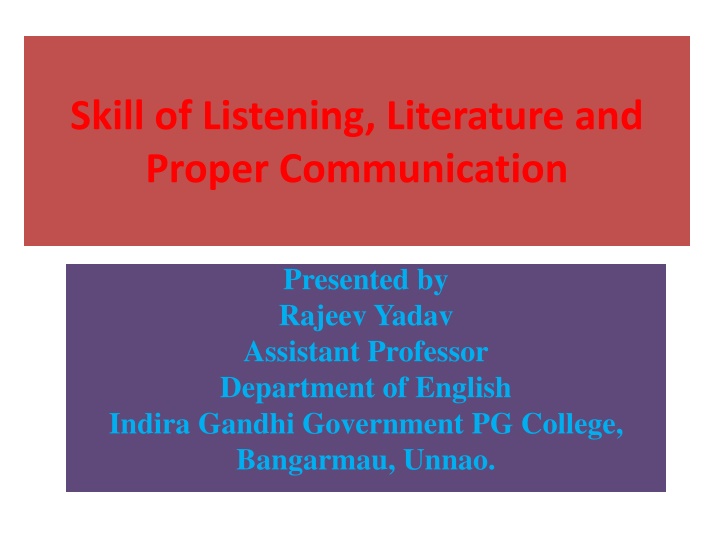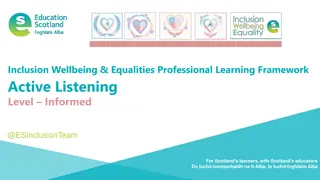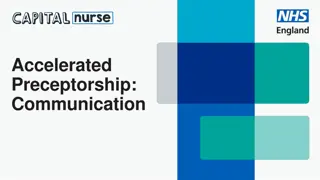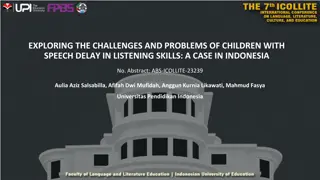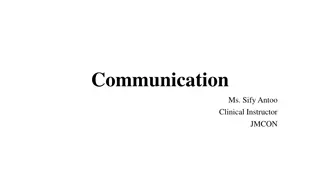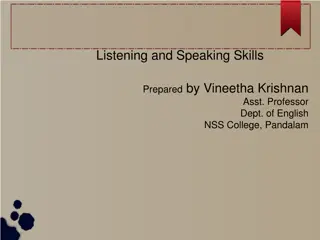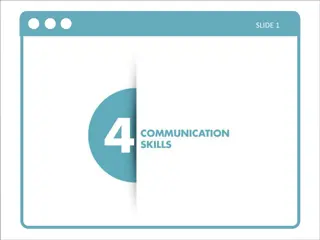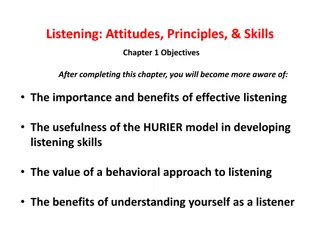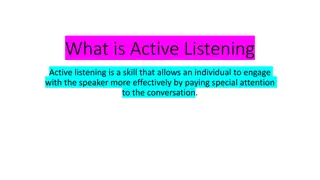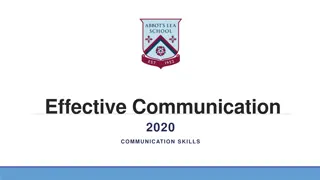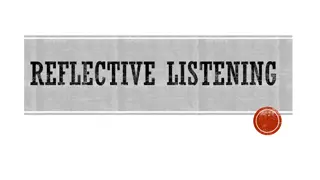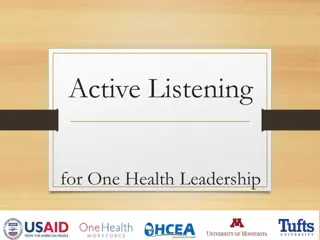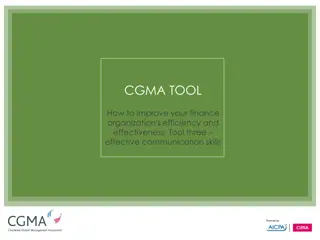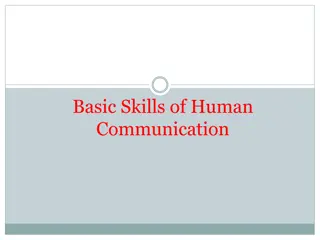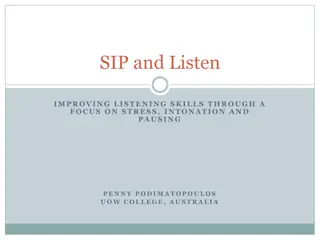Enhancing Listening Skills for Effective Communication
Developing effective listening skills is crucial for better communication. By actively engaging in the absorption of information, displaying interest, providing feedback, and promoting understanding, one can build stronger relationships, reduce stress, and foster conflict resolution. Learning to listen involves characteristics such as looking interested, involving oneself, staying focused, testing understanding, evaluating messages, and neutralizing feelings. Active listening, responding, paraphrasing, asking clarifying questions, using non-verbal cues, and giving feedback are key components to improve listening skills.
Download Presentation

Please find below an Image/Link to download the presentation.
The content on the website is provided AS IS for your information and personal use only. It may not be sold, licensed, or shared on other websites without obtaining consent from the author.If you encounter any issues during the download, it is possible that the publisher has removed the file from their server.
You are allowed to download the files provided on this website for personal or commercial use, subject to the condition that they are used lawfully. All files are the property of their respective owners.
The content on the website is provided AS IS for your information and personal use only. It may not be sold, licensed, or shared on other websites without obtaining consent from the author.
E N D
Presentation Transcript
Skill of Listening, Literature and Proper Communication Presented by Rajeev Yadav Assistant Professor Department of English Indira Gandhi Government PG College, Bangarmau, Unnao.
The Art of Listening If we were supposed to talk more than listen, we would have been given two mouths and one ear. Mark twain Listening is the absorption of the meaning of words and sentences by the brain. Listening leads to the understanding of facts and ideas.
Listening Vs Hearing Hearing physical process; natural; passive Listening physical and mental process; active learned process; a skill. Listening is hard! You must choose to participate in the process of learning.
What is Effective Listening? Effective listening skills are the ability to actively understand information provided by the speaker, and display interest in the topic discussed. It can also include providing the speaker with feedback, by asking pertinent questions so the speaker knows the message is received. Effective Listening is a skill using multiple senses to comprehend the message being sent by the speaker.
Importance of Listening in Communication Listening is the most powerful form of acknowledgment a way of saying, You are important. Listening builds stronger relationships creates a desire to cooperate among people because they feel accepted and acknowledged Listening promotes being heard Seek first to understand, then be understood. Listening creates acceptance and openness conveys the message that I am not judging you. Listening leads to learning openness encourages personal growth and learning Listening reduces stress and tension minimizes confusion and misunderstanding, eliminating related stress and tension Listening is CRITICAL in conflict resolution much conflict comes from the need to be heard. Successful resolution depends on being a non-anxious presence.
Characteristics of Listening L = Look interested I = Involve yourself by responding S = Stay on target T = Test your understanding E = Evaluate the message N = Neutralize your feelings
Listening Skills Active listening Listen with a purpose Responding Paraphrasing Asking questions for clarification Use non-verbal communication; smile, gestures, eye contact, and your posture Give feedback
The Process of Listening can be categorized into 4 main areas Hear Clarify Interpret Respond
10 Steps to Effective Listening Step 1: Face the speaker and maintain eye contact. Step 2: Be attentive, but relaxed. Step 3: Keep an open mind. Step 4: Listen to the words and try to picture what the speaker is saying. Step 5: Don t interrupt and don t impose your solutions.
10 Steps to Effective Listening (2) Step 6: Wait for the speaker to pause to ask clarifying questions. Step 7: Ask questions only to ensure understanding. Step 8: Try to feel what the speaker is feeling. Step 9: Give the speaker regular feedback. Step 10: Pay attention to what isn t said to nonverbal cues.
Barriers to Effective Listening Environmental Judgemental Attitude Bringing past at present Habit of extra talking Prediction and prejudices Impatience and reaction mode Selective listening Personal Bias Language/Culture Differences Faking Attention
